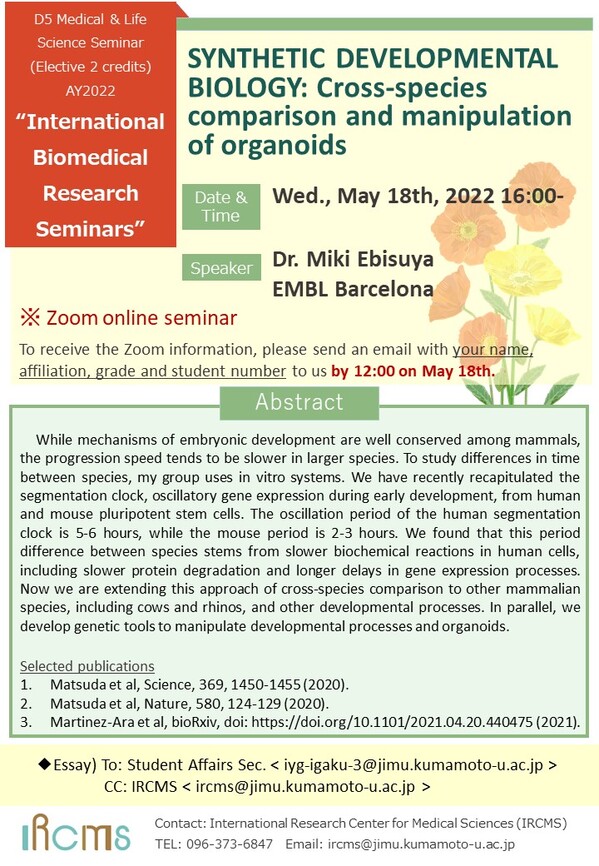- HOME
- News & Events
- [ May.18] D5 Medical & Life Science Seminar-Dr.Miki Ebisuya EMBL Barcelona
News & Events
[ May.18] D5 Medical & Life Science Seminar-Dr.Miki Ebisuya EMBL Barcelona
May 2 2022
Date : May 18, 2022 (Wednesday)
Time : 16:00 -
* Zoom online seminar
|
To receive the meeting ID / Password, please send an email to ircms*jimu.kumamoto-u.ac.jp by 12:00 on May 18, 2022. (Replace * with @ when you send an email.)Please include your name, affiliation, grade and student number in your email. |
Speaker :Dr. Miki Ebisuya EMBL Barcelona
Title : SYNTHETIC DEVELOPMENTAL BIOLOGY: Cross-species comparison and manipulation of organoids
While mechanisms of embryonic development are well conserved among mammals, the progression speed tends to be slower in larger species. To study differences in time between species, my group uses in vitro systems. We have recently recapitulated the segmentation clock, oscillatory gene expression during early development, from human and mouse pluripotent stem cells. The oscillation period of the human segmentation clock is 5-6 hours, while the mouse period is 2-3 hours. We found that this period difference between species stems from slower biochemical reactions in human cells, including slower protein degradation and longer delays in gene expression processes. Now we are extending this approach of cross-species comparison to other mammalian species, including cows and rhinos, and other developmental processes. In parallel, we develop genetic tools to manipulate developmental processes and organoids.
Selected publications

